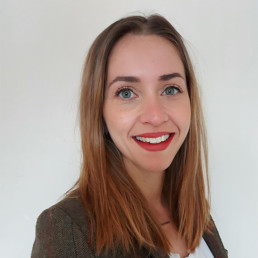
Written by Dena Eden
English teacher and writer based in Norfolk. MA in Educational Research and currently working as an English Standards Leader.
I signed up to the recent #DiverseEd conference knowing I would hear about some brilliant examples of Diversity, Equity and Inclusion work going on across education; I didn’t expect to finish the conference feeling empowered. Listening to authentic voices and lived experiences encouraged me to reflect on my own, and has given me the confidence I needed to forge ahead with necessary change.
As a cis white person I recognise my privilege. As a woman, I have experienced the frustration of my ideas not being taken seriously until a man repeats them. My choice on how to present physically also means people have undermined my intelligence and assume I enjoy shopping and ‘partying’ – they were someone’s actual words. They are surprised when I share my achievements and professional life before teaching. They are even more surprised when they find out I’m gay. Ironically, the part of my identity which is a ‘protected characteristic’ has been met with more positive outcomes than negative. When people ‘find out’ I am gay, women treat me more warmly and men take me more seriously. But that’s a whole other blog post.
I want to share my own experience to try and explain the effect the #DiverseEd conference had on me: despite being invested in creating a truly inclusive environment for a long time, I didn’t feel ‘diverse’ enough to be the person to do that – but at the same time also felt a huge pressure from being part of the LGBTQ+ community to be a voice for those who don’t speak up. Growing up in Birmingham and then living and working in both Mexico and the USA means that I have experience of living life in the role of the ‘other’ – but also that I have always worked in environments rich in diversity. Embarking upon a career in education in a significantly less diverse area of the UK was a shock to me.
Despite absolutely loving where I live and work for lots of reasons, it does continue to surprise me when I witness the problematic attitudes and language used when talking about diversity and inclusion. Discriminatory language is used without understanding why it is a problem and the pervasive idea that ‘real’ prejudice is overt and/or violent means many people do not recognise their privilege: Prejudice hides behind ignorance; tokenism acts as acceptance; tolerance is sufficient.
Understanding inaction: providing solutions not problems.
My experiences have frustrated me and as a result, I approached leadership in the Trust I currently work for to start a conversation; it was met with enthusiasm and support and has led to me setting up an Inclusive Communities group working with outstanding colleagues invested in making long lasting change.
Up until the #DiverseEd conference, I had some idea of what I wanted us to do – but have been apprehensive. For me, a truly inclusive environment has always been about addressing the root of the issue – people’s mindsets. Until people are willing to admit both their own privilege and the importance of the work that needs to be done, nothing will change.
Watching the conference helped me to reflect on previous conversations and helped me to understand that I had been too concerned with losing respect or upsetting others by voicing how crucial the work around diversity, equity and inclusion really is. But without action, we are conversationalists not activists; my thinking has now shifted from worrying about reactions to focusing on my own actions.
Before the conference, I felt like the battle was in trying to get people to appreciate the importance and immediacy of the work that needs to be done – it isn’t work with immediate measurable outcomes for example. After watching the conference, I feel validated in arguing that there should be no such battle. The immediacy and importance of this work is not an opinion – it is a fact.
So moving forward, rather than focusing on whether the changes can be made, I am focusing on how they will be made. Working with an incredible community and calling on the expertise of my colleagues, we are going to approach people with solutions rather than problems. This is where we are going to start:
- Looking at policy within schools and across the whole Trust.
- Educating our staff to be able to challenge one another and our young people – this will be led by training from authentic voices sharing their lived experiences.
- Recognising multiple stakeholders in this work: parents, governors and HR should be included in our approach to EDI.
- Working with our incredible curriculum team to explore ways we can include balanced and meaningful representation into our existing work.
It was overwhelming to think about the work that needed to be done; now I’m excited to get started. We deserve genuine support, not allowances; to be comfortable as well as safe; celebration, not tolerance.

